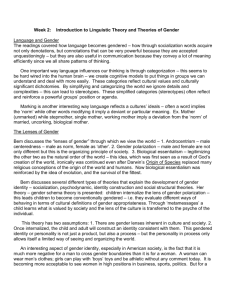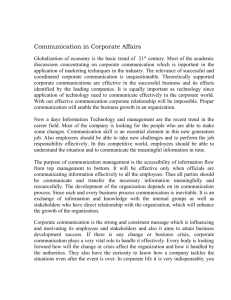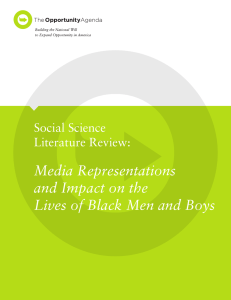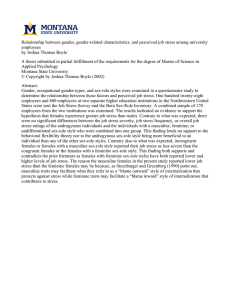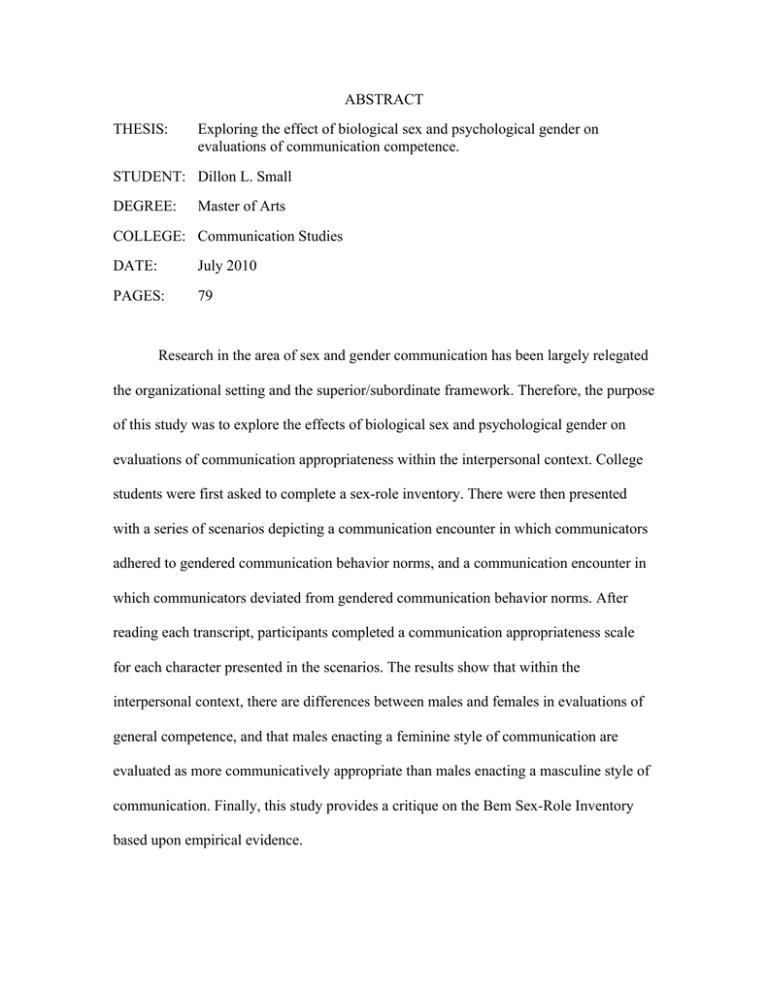
ABSTRACT
THESIS:
Exploring the effect of biological sex and psychological gender on
evaluations of communication competence.
STUDENT: Dillon L. Small
DEGREE:
Master of Arts
COLLEGE: Communication Studies
DATE:
July 2010
PAGES:
79
Research in the area of sex and gender communication has been largely relegated
the organizational setting and the superior/subordinate framework. Therefore, the purpose
of this study was to explore the effects of biological sex and psychological gender on
evaluations of communication appropriateness within the interpersonal context. College
students were first asked to complete a sex-role inventory. There were then presented
with a series of scenarios depicting a communication encounter in which communicators
adhered to gendered communication behavior norms, and a communication encounter in
which communicators deviated from gendered communication behavior norms. After
reading each transcript, participants completed a communication appropriateness scale
for each character presented in the scenarios. The results show that within the
interpersonal context, there are differences between males and females in evaluations of
general competence, and that males enacting a feminine style of communication are
evaluated as more communicatively appropriate than males enacting a masculine style of
communication. Finally, this study provides a critique on the Bem Sex-Role Inventory
based upon empirical evidence.


